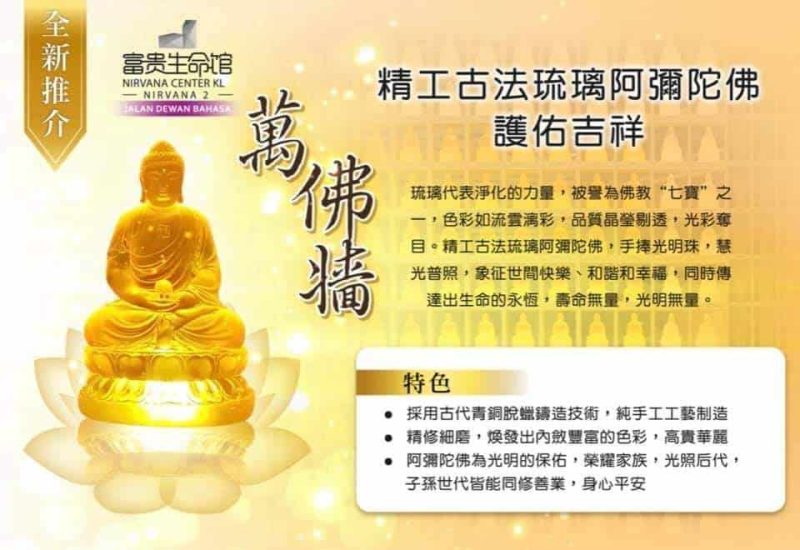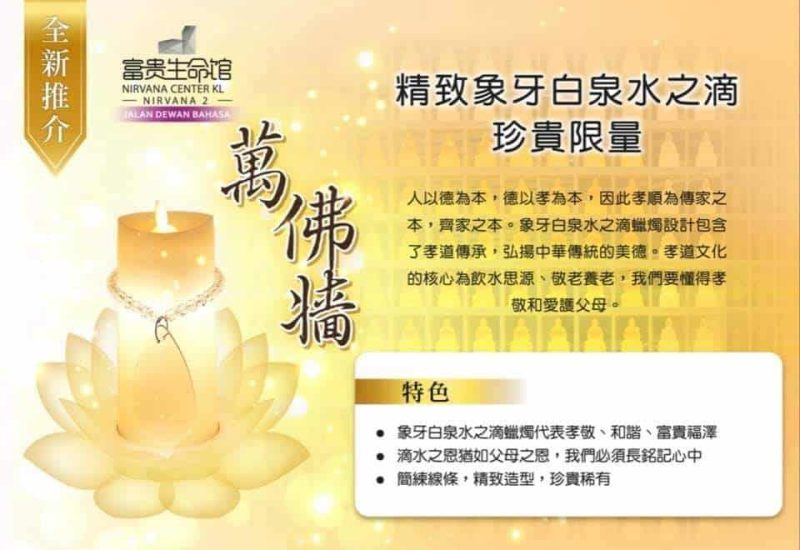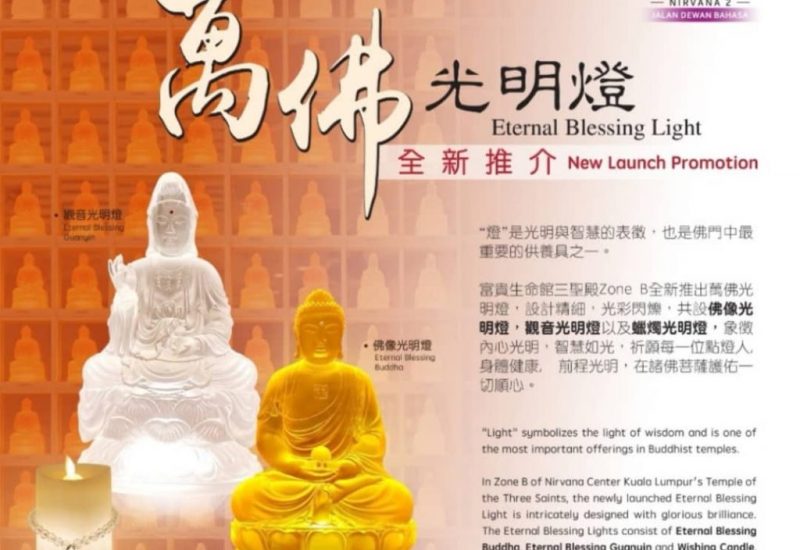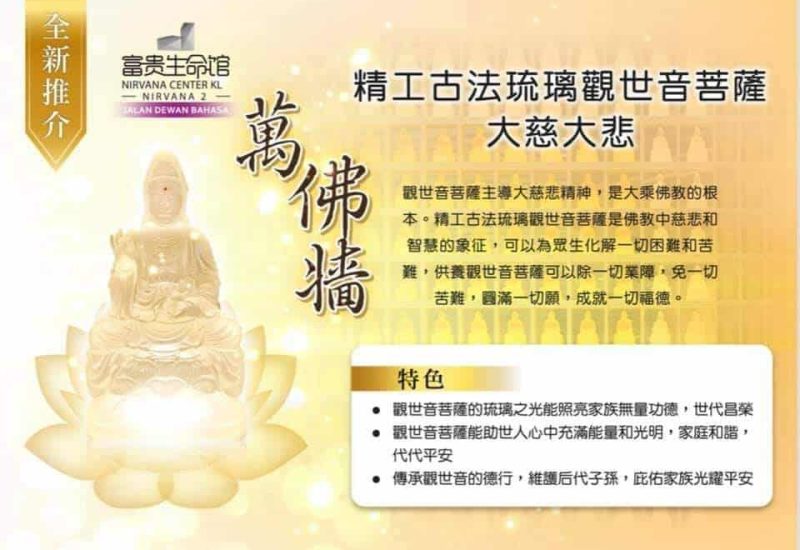The traditional Buddhist practice of offering lamps symbolises dispelling the darkness of ignorance and attainment of enlightenment by the Buddha.
It also carries the aspiration to attain liberation from suffering and the cultivation of merit through good deeds.
Because of its association with good fortune, this meritorious practice is encouraged and translated through Nirvana’s Eternal Blessing Lights. The traditional oil lamps are updated to exquisite crystal lamps in the form of Buddhas, Bodhisattvas and artificial candles emitting soft light for dedication to enlightened beings. The gift of light and prayers whether during difficult times or as a meritorious practice, help bring greater happiness in times of illness and loss while at the same improving family dynamics, career, health and overall fortunes.
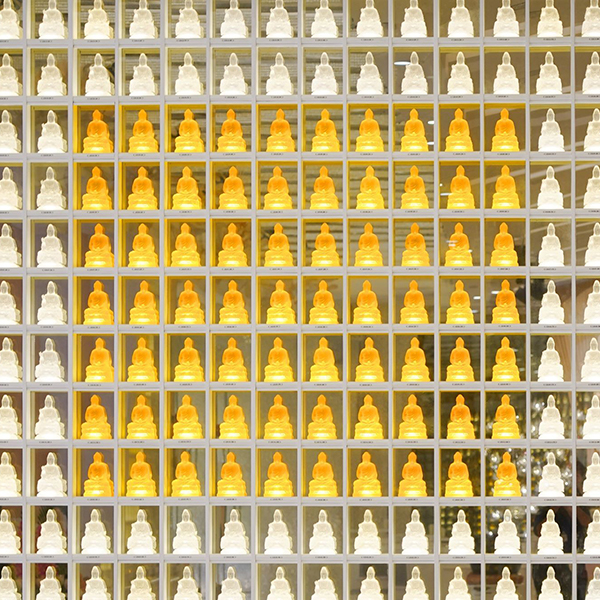
Who can we light for “Eternal Blessing Light” ?
-
A light for Parents, bless them to be healthy and happy.
-
A light for Work and Family, bless to moving onward and upward.
-
A light for Student, bless them to be smart and wise.
-
A light for Relatives and Friends, bless them on increasing good fates.
-
A light for Grievance Creditor, bless to bring good luck and ward off calamities.
-
A light for Myself, bless to brighten up myself and future.
-
Also a light for Friends who are in situation of “Fan Tai Sui’, bless for everything goes well, safe and healthy. Bring hopes and lights for us.
Why make offerings of light?
By offering light to the Buddha, it not only pays homage to his achievement of enlightenment, but it also serves as a reminder for oneself to strive for the same through the Dharma. Therefore, if one wishes to develop Dharma wisdom, he or she should offer light. The act of offering of light to the Buddha is also considered meritorious and is said to create the karma for great wealth and blessings for many hundreds or thousands of lifetimes.
Although butter lamps are the traditional form when it comes to making offerings of light, Buddhist masters will be quick to dismiss the misconception that offering traditional butter lamps is the only acceptable way. Candles, lanterns and even battery or electric-powered lamps can also be used for this purpose. In fact, Buddhist teachers advocate that whatever light is clearer and dispels darkness then it is suitable to be offered. The most important thing is having the right motivation in making the offering.
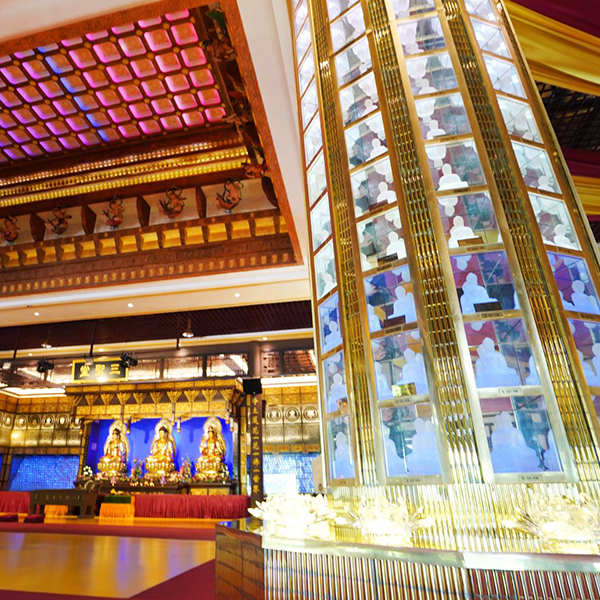
Nirvana Ancestral Tablet
Ancestral worship in the form of ancestral tablets is a Chinese tradition that dates back to the ancient times. Ancestral tablets in the past usually take central position at the altar of traditional Chinese homes. It is a sacred item that is synonymous with the virtue of filial piety.

Why choose me to assist you with pre-planning?

Having more than 15 years of experience in funeral services

Assisted over 10,000 families in completing pre-planning for funeral services

Provide you with the most suitable and reasonable options

Top Group Life PlanningBDD Agency 2021 - Champion

Top Group Life Planning CBDD Agency 2022 - 3rd Place


